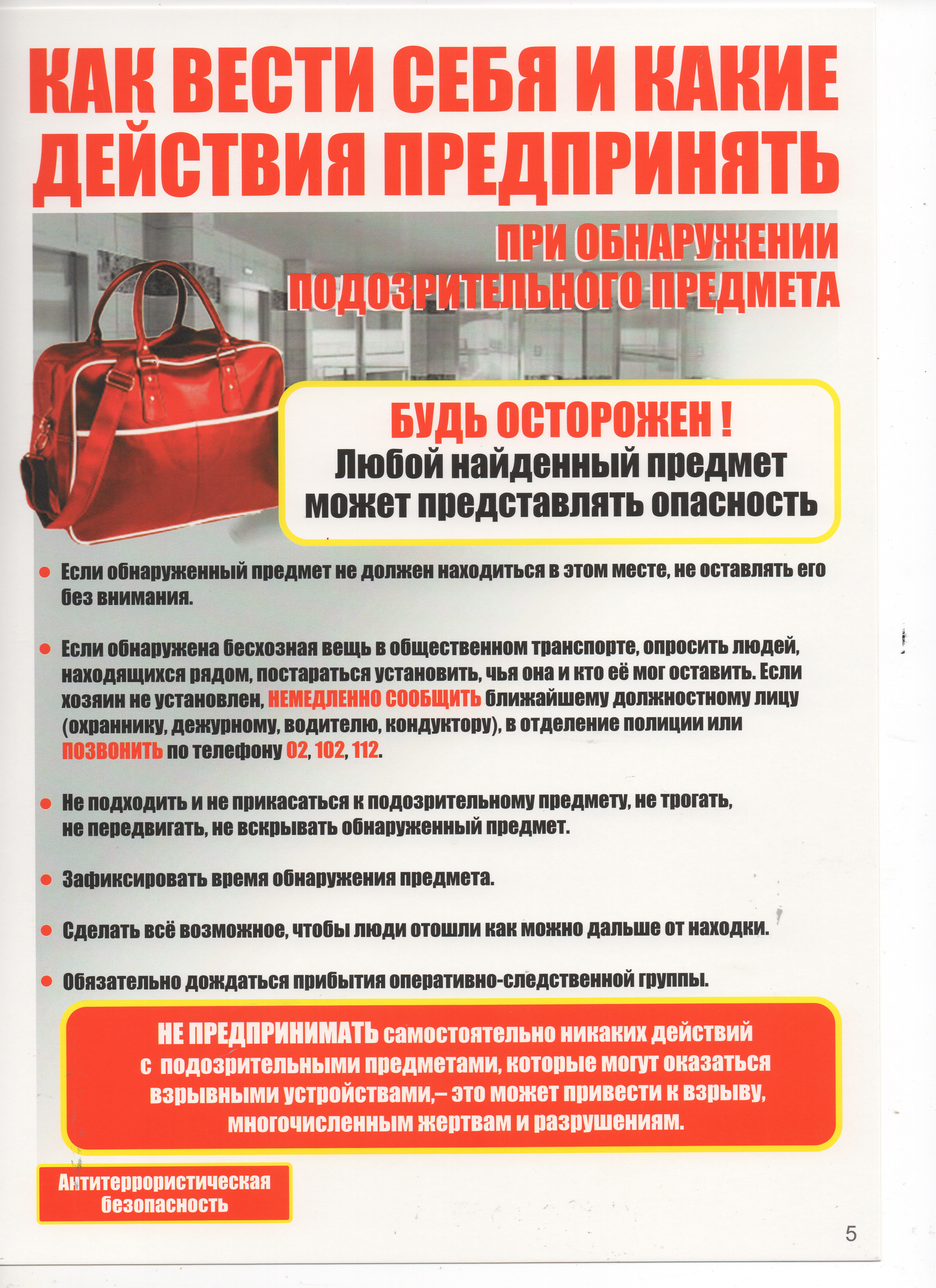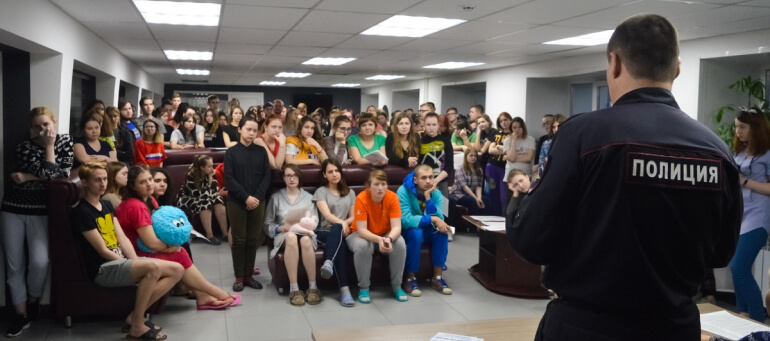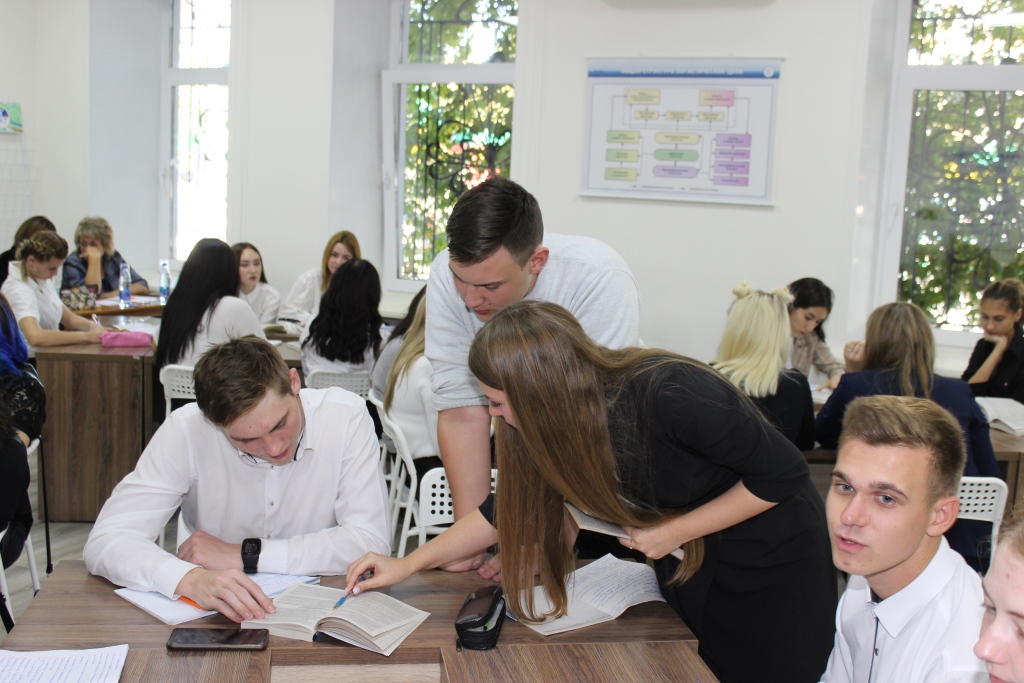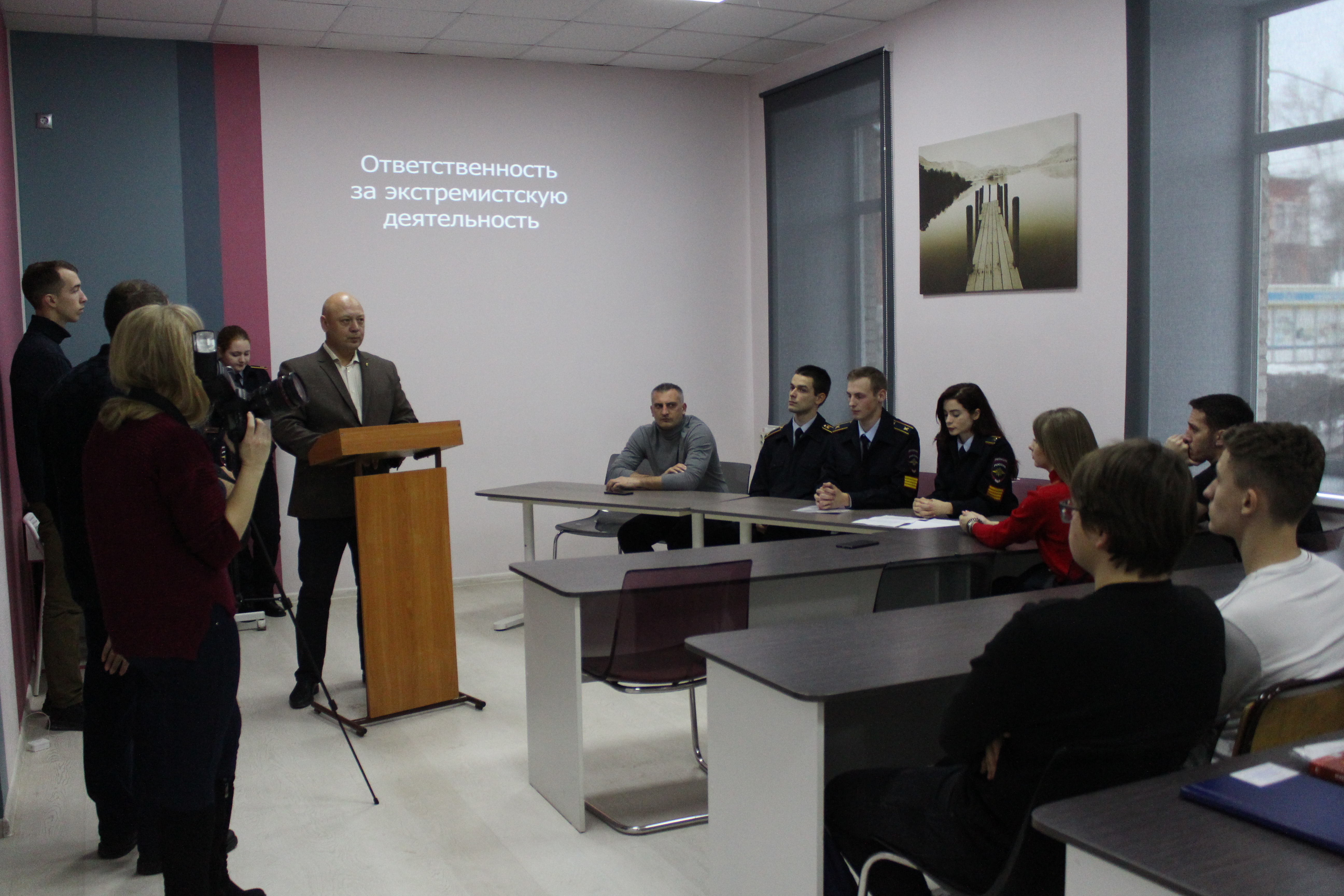- Federal Law of July 25, 2002 N 114-FL "On Countering Extremist Activities"
- Federal List of Extremist Materials
- Clarification of certain provisions of the Criminal Code of the Russian Federation and the Administrative Code of the Russian Federation in the field of countering extremism
- Unified federal list of organizations, including foreign and international organizations, recognized in accordance with the legislation of the Russian Federation as terrorist
- Unified register of domain names, pointers of pages of sites on the Internet and network addresses that allow identifying sites on the Internet containing information that is prohibited in the Russian Federation
- General recommendations to citizens on actions in case of a threat of a terrorist act (according to the NAC)
- Memo for parents on the prevention of extremism
- Methodological recommendations for preventing and countering extremism in the youth environment
- Methodological materials for pedagogical and management workers of educational organizations on countering the spread of extremism in the youth environment
- Methodological manual "Prevention of extremism and terrorist behavior of young people in the Internet space: traditional and innovative forms"
- Prevention of extremism and terrorism
- Internet Security
- Report illegal content
Information for students and teachers of Barnaul Cooperative College about responsibility for posting extremist materials on the Internet
Extremism - from the French word extremisme, which, in turn, came from the Latin extremus - is extreme.
In the case of people, this person or group of people who hold extreme radical views, take appropriate measures or implement their principles.
Extremism is especially dangerous because of incitement to hatred or enmity, as well as to humiliate the dignity of a person or a group of persons on the grounds of sex, race, nationality, language, origin, attitude to religion, as well as membership in a social group.
Actions of an extremist nature are subject to administrative, criminal and civil liability.
Administrative, criminal and civil liability is also provided for the posting on the Internet of materials of an extremist nature, the content of which is aimed at inciting hatred or enmity, as well as at humiliating the dignity of a person or group of persons on the grounds of sex, race, nationality, language, origin, attitude to religion, as well as membership in a social group.
Extremist materials include:
- printed or handwritten text;
- combined text, including images, videos and leaflets, etc.
Responsibility for posting materials on the Internet of an extremist content:
1. Administrative - Art. 20.29. Production and distribution of extremist materials
Mass distribution of extremist materials included in the published federal list of extremist materials, as well as their production or storage for the purpose of mass distribution, entails an administrative fine on citizens in the amount of one thousand to three thousand rubles or administrative arrest for a period of up to fifteen days with the confiscation of these materials and equipment used for their production; for officials - from two thousand to five thousand rubles with the confiscation of these materials and equipment used for their production; for legal entities - from one hundred thousand to one million rubles or administrative suspension of activities for a period of up to ninety days with the confiscation of these materials and equipment used for their production.
2. Criminal - Article 282. Incitement to hatred or enmity, as well as humiliation of human dignity
1. Actions aimed at inciting hatred or enmity, as well as humiliating the dignity of a person or a group of persons on the grounds of sex, race, nationality, language, origin, attitude to religion, as well as membership in a social group, committed publicly or using the media or information and telecommunication networks, including the network "Internet," - are punished by a fine in the amount of three hundred thousand to five hundred thousand rubles or in the amount of wages or other income of the convicted person for a period of two to three years, or forced labour for a period of one to four years with deprivation of the right to hold certain posts or engage in certain activities for a period of up to three years, or imprisonment for a term of two to five years.
2. The same acts committed:
a) with the use of violence or with the threat of its use;
b) a person using his official position;
c) by an organized group, -shall be punished by a fine in the amount of three hundred thousand to six hundred thousand rubles or in the amount of the salary or other income of the convicted person for a period of two to three years, or forced labour for a period of two to five years with deprivation of the right to hold certain posts or engage in certain activities for a period of up to three years, or imprisonment for a term of three to six years.
3. Civil Law - Article 151. Compensation for non-pecuniary damage
If a citizen is caused moral damage (physical or moral suffering) by actions that violate his personal non-property rights or encroach on the intangible benefits belonging to the citizen, as well as in other cases provided for by law, the court may impose on the violator the obligation of monetary compensation for the said harm.
Combating extremist activities is carried out in the following main areas:
- Preventive measures aimed at preventing extremist activities, including the identification and subsequent elimination of the causes and conditions conducive to extremist activities;
- Identification, prevention and suppression of extremist activities of public and religious associations, other organizations, individuals.
Prevention of xenophobia and extremism in educational organizations is of particular importance and potential for impact:
Almost 100% of our citizens are trained in educational organizations and in many ways their life position depends on what education they received in educational organizations (how well they worked with them, including in terms of preventing xenophobia and extremism)
It is possible to effectively use the potential of teachers in the prevention of xenophobia and extremism
It is the students who become the object of influence of extremists due to their lack of proper life experience. The average age of extremists is 25 years
Despite the fact that state authorities, local self-government bodies, law enforcement agencies of Russia constantly carry out prevention and counteraction of xenophobia and extremism among young people, there are problems in this direction and they need to be solved, including in educational organizations
Organization of the work of the legal club "Femida" prevention of xenophobia and extremism
The work plan of the Femida Law Club provides for the following activities:
1) Information activities on topics:
- "Extremism and terrorism: threats to modern Russia";
- "Prevention of juvenile delinquency"
- "Crime and punishment"
- "Internet security," etc.
The above-mentioned events are held annually not only for students at the college, but also in schools in Barnaul.
2) Participation in competitions for the best project, essay, media content (poster, post, video)
3) Conducting open extracurricular measures to prevent extremist sentiments in the youth environment.
4) Participation in competitions for the best educational and research work.
The purpose of the activities is to prevent xenophobic and extremist sentiments in the youth environment.
During the events, students get acquainted with information about the main concepts of such phenomena as xenophobia, extremism and terrorism, the danger of extremist and terrorist offenses for Russia and the Altai Territory, and liability for such offenses. At the end of each session, a

reflection is necessarily carried out to determine the awareness of those present about the dangers of terrorism and extremism, the presence of extremist sentiments in the youth environment.
Activities are planned and executed taking into account:
- Monitoring of extremist and terrorist offences in Russia and the Altai Region;
- interviews of trainees and teachers.
Anonymous questionnaires of students and teachers who participated in the events are regularly conducted.Students present at the events from 20 to 40% indicate the presence of extremist statements, moods in the youth environment (present significantly, insignificantly).
As part of a month to combat terrorism, the Femida Legal Club invites guests. Chairman of the Altai Youth Policy Development Fund Deev Artem Yuryevich held a lecture "Prevention of extremism and terrorism in the youth environment."
Students learned what offences and crimes are punishable, what is terrorism, extremism. The guys were involved in the conversation, asked a lot of questions.
The lecture was not only preventive, but also advisory in nature, because students were again urged to be attentive, vigilant towards suspicious people and suspicious objects and, in case of danger, always report to law enforcement agencies.
As a result of the organized events of the Femida Law Club, the following are provided:
- Formation of target audience among participants and representatives:
- Interest in solving problems of effective counteracting xenophobia, extremist attitudes and sentiments among young people between the ages of 14 and 30;
- conduct, worthy, responsible, law-abiding citizen and patriot of Russia, in relations with citizens of Russia, foreigners in conditions of various ideological, political, religious convictions, belonging to different national and ethnic groups.
- Involvement of students and teachers in the prevention of xenophobia, extremist and terrorist offences among young people.
- Improvement of legal and Internet literacy, acquisition of communication and research skills from members of the Femida Club and representatives of the target audience.
- Ensuring a better socio-psychological climate in educational groups.



